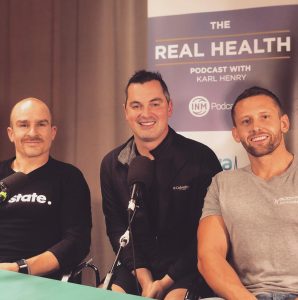Between Black Friday and the Toy Show, present buying for Christmas is first and foremost on a lot of people’s minds, and on this week’s Real Health, I thought, why not ask two of Ireland’s leading personal trainers what their wish list for Christmas would be?
John Belton of No. 17 Personal Training and Paul Moran from BodyRock Performance joined me with their recommendations for training-related gifts for friends and family.
There’s a few gadgets and gizmos on their list to aid in your running or gym work but I think you’ll be pleasantly surprised by some of their wish list favourites that go beyond just health and fitness.
Go check out this episode of the Real health podcast with Karl Henry, Paul Moran & John Belton where we give you our top 10 fitness gift 🎁 ideas 💡 for this Christmas 🎄https://open.spotify.com/show/34V3reoPjzHBBlr4fS6PVQ
For more episodes and information from the Real Health podcast you can also go to: https://www.independent.ie/podcasts/the-real-health-podcast/
The Real Health podcast with Karl Henry in association with Laya Healthcare.
Listen to the show on the SoundCloud player or subscribe and rate via the following links:
iPhone users can subscribe and listen on Apple Podcasts.
Android users can subscribe and listen on Google Podcasts.
Or listen on SoundCloud
And we’re on Spotify
-
This is text for item1
-
This is text for item2
-
This is text for item3
-
This is text for item4
-
This is text for item5


 0
0


